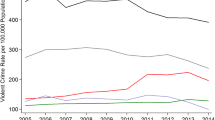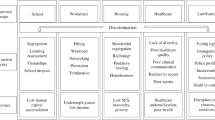Abstract
This paper discusses a number of critical ethical problems that arise in interactions between queer patients and health care professionals attending them. Using real-world examples, we discuss the very practical problems queer patients often face in the clinic. Health care professionals face conflicts in societies that criminalise same sex relationships. We also analyse the question of what ought to be done to confront health care professionals who propagate falsehoods about homosexuality in the public domain. These health care professionals are more often than not motivated by strong religious convictions that conflict with mainstream medical opinion on homosexuality. We argue that they ought to be held accountable for their conduct by their professional statutory bodies, given that they abuse their professional standing to propagate sectarian views not representative of their profession. Lastly, we propose that medical schools have special responsibilities in training future health care professionals that will enable them to respond professionally to queer patients seeking health care.
Similar content being viewed by others
References
American Psychiatric Association. 2000. “Position statement on therapies focused on attempts to change sexual orientation (reparative or conversion therapies).” American Journal of Psychiatry 157: 1791–1721.
BBC News. 2012. “California Bans Teenage Gay Conversion Therapy.” October 2. Accessed November 8, 2012. http://www.bbc.co.uk/news/world-us-canada-19789505.
Buckley, Byron. 2012. “Balancing the Gay-Rights Debate.” The Gleaner, May 20. Accessed November 8, 2012. http://jamaica-gleaner.com/gleaner/20120520/cleisure/cleisure5.html.
Cenac, Veronica S.P. 2010. “CARICOM Pan Caribbean Partnership on HIV and AIDS.” In Regional Policy and Model Legislation to address HIV and AIDS related Discrimination, 12. Georgetown, Guyana: CARICOM/PANCAP.
Claes, Jacalyn A., and Wayne Moore. 2000. "Issues confronting lesbian and gay elders: The challenge for health and human services providers." Journal of Health and Human Services Administration, 23:181–202.
Davis, Ronald M., Myron Genel, John P. Howe III, Mitchell S. Karlan, William R. Kennedy, Patricia Joy Numann, Joseph A. Riggs et al. 1996. "Health care needs of gay men and lesbians in the United States." JAMA: The Journal of the American Medical Association 275, no. 17: 1354–1359.
Global Commission on HIV and the Law. 2012. HIV and the Law: Risks, Rights and Health. New York: UNDP.
Jamaica Observer. 2012. “Can Counselling ‘Fix’ My Gay Husband?” April 23. Accessed November 8, 2012. http://www.jamaicaobserver.com/magazines/allwoman/Can-counselling--fix--my-gay-husband_11270719.
Kissoon, Vidyaratha. 2011. “Guayana’s Hindus Face Gay Quandary.” Hinduism Today March/April/May. Acccessed July 8, 2012. http://www.hinduismtoday.com/modules/smartsection/item.php?itemid=5172.
Kalbfleisch, Norm and Terri Schmidt. “Cultural Competency in Lesbian, Gay, Bisexual and Transgender.” Accessed July 9, 2012. [http://ecommons.med.harvard.edu/ec_res/A3FAEF29-6A7A-4CCA-A662-1EFDB1125B4F/glbt_cultural_competency.pdf.
McMahon, Ellen. 2003. "The older homosexual: current concepts of lesbian, gay, bisexual, and transgender older Americans." Clinics in Geriatric Medicine 19, no. 3: 587.
Ministry of Health Jamaica (MOH). 2010. “Culture Shift Needed to Help in the Fight Against HIV/AIDS.” October 10. Kingston: MOH. Accessed November 8, 2012. http://www.moh.gov.jm/general/latestnews/1-latest-news/346-culture-shift-needed-to-help-in-the-fight-against-hivaids.
Moyer, Christine S. 2011. “LGBT patients: Reluctant and Underserved.” American Medical News, September 5. Accessed July 9, 2012. http://www.ama-assn.org/amednews/2011/09/05/prsa0905.htm.
Obedin-Maliver, Juno, Elizabeth S. Goldsmith, Leslie Stewart, William White, Eric Tran, Stephanie Brenman, Maggie Wells, David M. Fetterman, Gabriel Garcia, and Mitchell R. Lunn. 2011. "Lesbian, gay, bisexual, and transgender–related content in undergraduate medical education." The Journal of the American Medical Association 306, no. 9: 971–977.
Schuklenk, Udo. 2012. “Visiting Caribbean Bioethicists.” Developing World Bioethics 12, no. 2: ii.
UNAIDS. 2008. Global Report on the AIDS Epidemic. Geneva: UNAIDS. Accessed July 9, 2012. http://data.unaids.org/pub/GlobalReport/2008/jc1511_gr08_executivesummary_en.pdf
-----. 2008a. . Keeping Score II: A Progress Report towards Universal Access to HIV Prevention, Treatment, Care and Support in the Caribbean. Geneva: UNAIDS. Accessed July 9, 2012. http://www.unaids.org/en/media/unaids/contentassets/dataimport/pub/report/2008/20081206_keepingscoreii_en.pdf/
West, Wayne. 2011. “Why a conscience vote on sodomy, Mrs Simpson Miller?” The Gleaner, December 23. Accessed July 9, 2012. http://www.jamaicaobserver.com/letters/Why-a-conscience-vote-on-sodomy--Mrs-Simpson-Miller-_10446103.
Winnipeg Free Press. 2009. “It’s Discrimination.” January 28. Accessed July 8, 2012. http://www.winnipegfreepress.com/opinion/editorials/editorial_its_discrimination38536252.html.
Author information
Authors and Affiliations
Corresponding author
Rights and permissions
About this article
Cite this article
Schuklenk, U., Smalling, R. Queer Patients and the Health Care Professional—Regulatory Arrangements Matter. J Med Humanit 34, 93–99 (2013). https://doi.org/10.1007/s10912-013-9211-2
Published:
Issue Date:
DOI: https://doi.org/10.1007/s10912-013-9211-2




